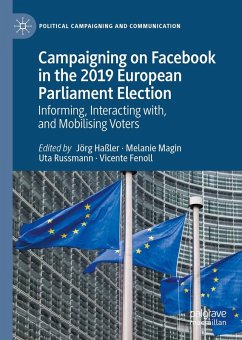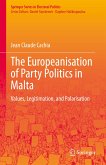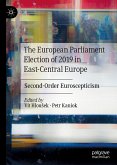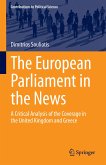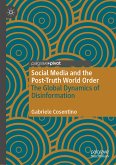"This remarkable book is the outcome of an international collaborative endeavour. It clearly shows that social networks have finally become an integral part of European election campaigns. With its careful methodological design, the study impressively demonstrates the particular value of cross-border comparisons and the need for research to take the national context into account."
-Christina Holtz-Bacha, Friedrich-Alexander University Erlangen-Nürnberg, Germany
"A timely and stimulating book covering recent European Parliament elections in twelve nations. The common methodological background produces sound and comparable results, and its comprehensive language and broad scope of cases make this book a perfect fit for researchers, policymakers and citizens attentive to social media's role in elections."
-Karolina Koc-Michalska, Audencia Business School, France
Jörg Haßler is Head of the junior research group "Digital Democratic Mobilization in Hybrid Media Systems" at LMU Munich, Germany.
Melanie Magin is Associate Professor at the Norwegian University of Science and Technology (NTNU), Trondheim, Norway.
Uta Russmann is Professor at the FHWien der WKW University of Applied Sciences of Management & Communication, Austria.
Vicente Fenoll is Associate Professor at the University of Valencia, Spain.
Dieser Download kann aus rechtlichen Gründen nur mit Rechnungsadresse in A, B, BG, CY, CZ, D, DK, EW, E, FIN, F, GR, HR, H, IRL, I, LT, L, LR, M, NL, PL, P, R, S, SLO, SK ausgeliefert werden.
Es gelten unsere Allgemeinen Geschäftsbedingungen: www.buecher.de/agb
Impressum
www.buecher.de ist ein Internetauftritt der buecher.de internetstores GmbH
Geschäftsführung: Monica Sawhney | Roland Kölbl | Günter Hilger
Sitz der Gesellschaft: Batheyer Straße 115 - 117, 58099 Hagen
Postanschrift: Bürgermeister-Wegele-Str. 12, 86167 Augsburg
Amtsgericht Hagen HRB 13257
Steuernummer: 321/5800/1497
USt-IdNr: DE450055826
Bitte wählen Sie Ihr Anliegen aus.
Rechnungen
Retourenschein anfordern
Bestellstatus
Storno

